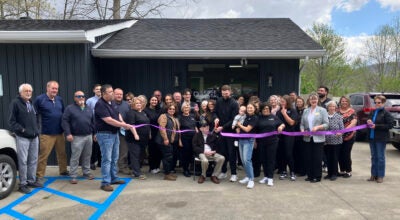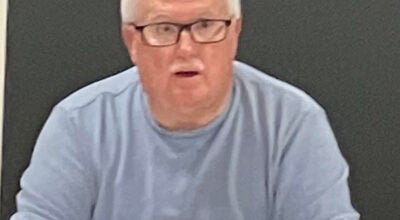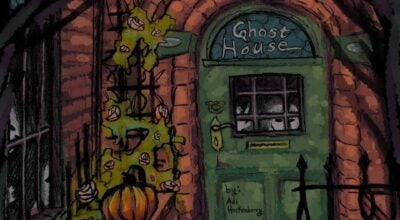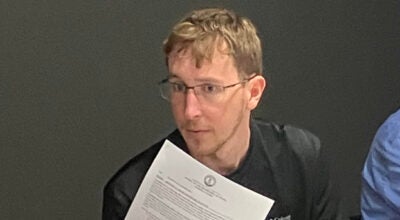Democrat, GOP AGs in Appalachia form union in opioid fight
Published 12:00 am Thursday, January 1, 1970
HUNTINGTON, W.Va. (AP) — From different states and opposing parties, West Virginia’s Patrick Morrisey and Kentucky’s Andy Beshear have joined forces to go after something all too common in Appalachia: the scourge of drug addiction.
Morrisey, a Republican, and Beshear, a Democrat, attended a news conference Monday in Huntington to announce an effort to urge health insurers to review their policies for pain management treatment to encourage prescribing alternatives to opioids more often.
In both Kentucky and West Virginia, the epidemic’s impact on people is hard to miss. The urgency of the problem was driven home late last week when Beshear and a member of his staff stumbled on an unconscious overdose victim in Lexington, Kentucky.
Morrisey said it made sense to work together with Beshear on a problem so pervasive. The pair are co-sponsors of a letter from three dozen states to the insurers.
“We’ve able to work together on a lot of very important initiatives and challenges facing our states, and the opioid epidemic is certainly at the top of that list,” Morrisey said.
Beshear has been involved in a bitter battle with the policies of Republican Kentucky Gov. Matt Bevin. But when it comes to opioid addiction, Beshear has no problem working with anyone, including a GOP counterpart.
“This is the challenge of our times,” Beshear said. “More than any other issue, this is going to determine whether Kentucky and West Virginia move forward or whether we fall back.”
It’s the second time in less than a year that Beshear and Morrisey have banded together on an anti-drug initiative.
Last October, they met in Huntington to stir up community involvement to eliminate drug addiction. Dozens of pastors, law enforcement officers, health care professionals and advocacy groups attended the conference.
West Virginia has the highest rate of drug overdose deaths in the United States: 41.5 per 100,000 residents, more than twice the national average. Kentucky and Ohio both are third with 29.9 deaths per 100,000.
Recently Beshear experienced the drug crisis up close when he came upon an overdose victim in traffic.
“He was turning blue to purple,” Beshear said. “The next color is dead.”
Beshear said he saw a woman beating on the window of a stopped car with the man inside. Beshear and one of his investigators, who also is a paramedic, pulled the man out. A Lexington police officer brought a bottle of anti-overdose naloxone and it was administered. The victim was revived and taken to the hospital.
“This can happen anywhere to anyone. It’s gotten that big,” Beshear said. “And we all need to be prepared to step up and ultimately not only save that life but give that person an opportunity to get better, because his family is depending on it.”





